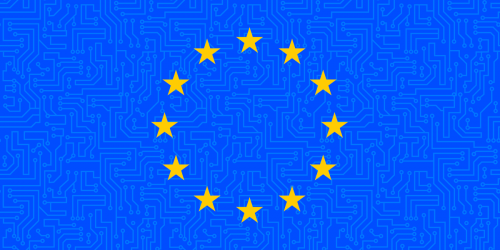When attorneys use the term "intellectual property," they generally are referring to three areas of law collectively: patent, copyright, and trademark. These are all what lawyers call "intangible interests" that are defined and protected by statutory or common law.
While the term "intellectual property" is widely accepted and used by lawyers, the term also has a fascinating and controversial history, first coming into wide use in the U.S. in the 1870s during battles over whether the patent system should be abolished, and continuing to attract criticism today from activists and scholars alike.
The controversy stems from two aspects of the term "intellectual property." First, the term is imprecise. Sure, "intellectual property" includes copyright, patent, and trademark law, but there is little agreement about what other kinds of legal claims law it may encompass. For example, some may use the term to refer to one or more of trade secrets, rights of publicity, semiconductor masks, or industrial designs, among other things. This ambiguity can create confusion, which can sometimes be manipulated by those who want to clothe themselves in the perceived legitimacy of the three "core" legal areas. In fact, in the U.S., the term "intellectual property" first came into wide use in the U.S. when advocates of the patent system sought to lump patent law together with copyright law in order to gain the advantage of the relatively more secure reputation of copyright law in the late 1800s.
Second, the use of the word "property" to tie these disparate areas of law together can mislead lawyers, judges, policymakers, and interested citizens into thinking that copyrights, patents and trademarks should be treated like real property. For example, it is no coincidence that, from the dawn of copyright law in England in the 1700s, those pushing to expand copyright have used terms like "literary property," while those seeking to limit copyright have preferred to refer to "monopoly privileges." The same selective use of words continues to divide those who have different views about the proper reach of copyright, patent, and trademark law.
Copyrights, patents, and trademarks have some characteristics in common with traditional forms of tangible property. But they are also unlike tangible property in important ways. Scholars and courts agree that "intellectual property" is a very special kind of "property," created and protected in law as an exception to free market competition in order to encourage some socially worthwhile activity (e.g., authorship, invention, or maintenance of identifiers indicating a product's source) that would otherwise not occur. As Prof. Mark Lemley has aptly put it, "the proper goal of intellectual property is to give as little protection as possible consistent with encouraging innovation." (Note that the use of "intellectual property" in this statement suffers from the imprecision described above, because this rationale fits copyright and patent law much better than trademark, which is created in order to protect consumers from confusion in the marketplace rather than to encourage authorship or invention.)
We at EFF believe that we should understand the words we use. We also strive to educate lawyers, judges, policymakers, and interested citizens about the ways in which those words can both illuminate and obscure important issues. Accordingly, if you want to learn more about the term "intellectual property," its historical development, and the ways in which it is used (and misused) in various contexts today, we recommend the following resources:
- Adrian Johns, Piracy: The Intellectual Property Wars from Gutenberg to Gates (2009) (particularly Chapter 10)
- Mark Lemley, Property, Intellectual Property, and Free Riding, 83 Texas Law Review 1031 (2005)
- Justin Hughes, Copyright and Incomplete Historiographies - of Piracy, Propertization, and Thomas Jefferson, 79 Southern California Law Review 993 (2006)
- Justin Hughes, Notes on the Origin of "Intellectual Property": Revised Conclusions and New Sources (work-in-progress 2010)
- Richard M. Stallman, Did You Say "Intellectual Property"? It's a Seductive Mirage









